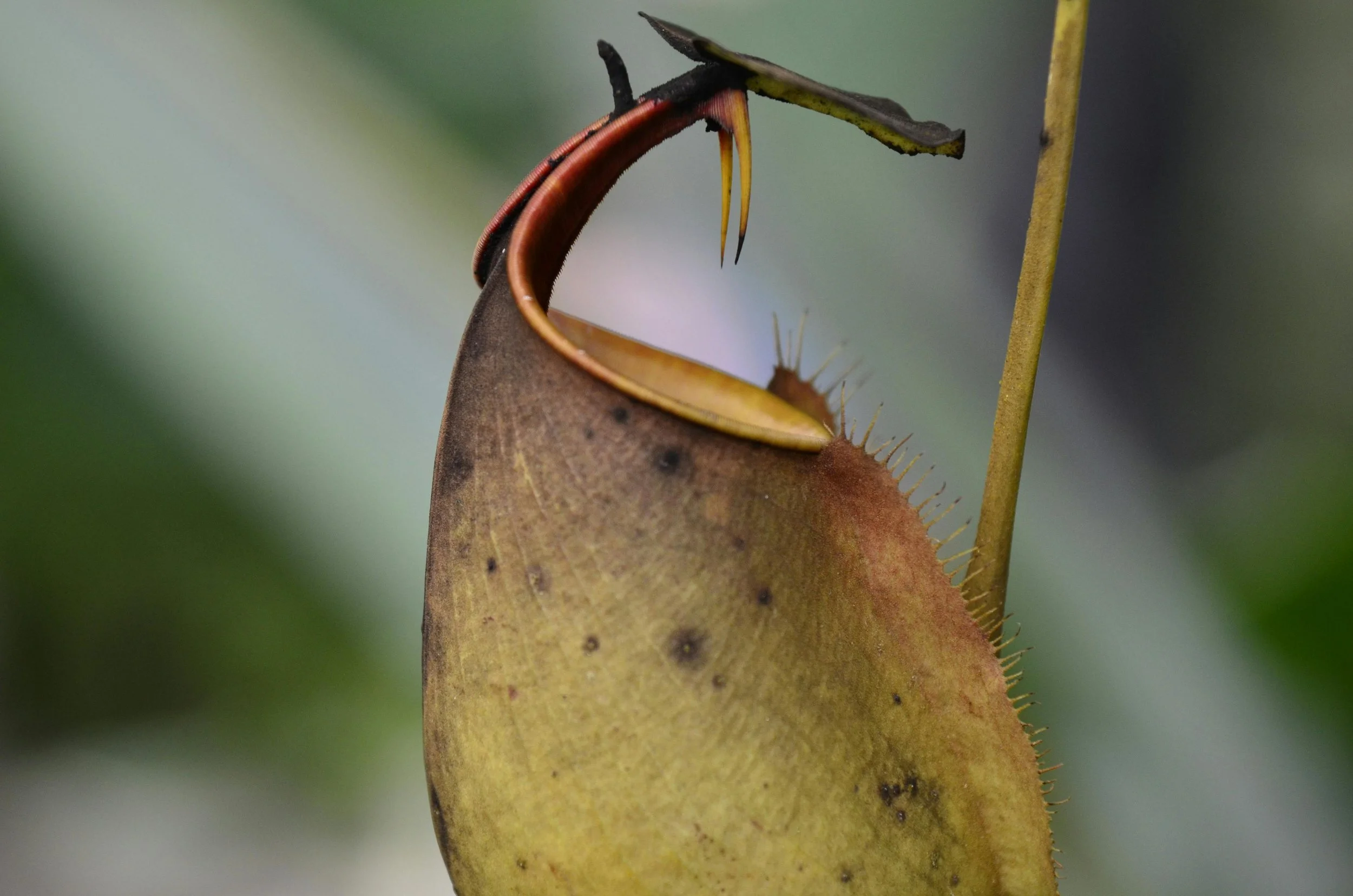A Living Armoury for the Queer-Feminist Counter-Apocalypse
Tenderlymilitant.exe by Anna Zoe Hamm, Design Academy Eindhoven
Contrary to popular belief, plants are not submissive beings. They possess a wide range of defence strategies, such as spines, toxins, mimicry, and movement, as well as forming alliances with insects and fungi. These mechanisms are not signs of weakness; instead, they demonstrate intelligence—showing that life has the ability to protect itself through adaptation, cooperation, and sensitivity.
The belief that plants are passive has long supported human hierarchies of power. This ideology justifies exploitation by labelling some beings as lesser, voiceless, or available for use. Historically, these same systems have been used to subjugate women, queer communities, and anyone who does not fit into dominant definitions of strength. Tenderlymilitant.exe emerges as a response to this—an attempt to dismantle the myth of submission and to rethink what resistance can look like when it is alive and relational.
Ecofeminist designer and researcher Anna Zoe Hamm explores the balance between care and resistance through a sculptural “broom armoury” — part of her wider project Tenderlymilitant.exe.
These hybrid objects draw inspiration from studies of plant defense mechanisms that she conducted in botanical gardens and in the archives of the Natural History Museum in Vienna. Hamm connects humanity's historical domination of plants with the broom's association with female labor, aiming to reclaim both from the narratives of submission and persecution that arose during the witch hunts.
Traditionally, the broom symbolises domestic servitude and superstition. Hamm reimagines it as an ally: a companion in resistance that listens as much as it acts. Each broom embodies a form of botanical intelligence: steel recalls thorns, silicone mirrors protective membranes, and horsehair is soft yet resilient.
The project expands through the Catalogue of Tender Militancy, a digital archive documenting the plant kingdom's defensive physiologies while reinterpreting them as tools for social and feminist resistance. By reframing botanical behaviour as a language of boundaries and survival, Hamm reveals how non-human systems of care can inspire strategies for confronting human hierarchies.
Within this evolving glossary, a weapon becomes a tool that allows softness to endure in hostile conditions; pain becomes an indicator of boundaries; and tender militancy transforms care into power through radical defence. The project acknowledges that weapons and militancy have often upheld systems of oppression, but insists that resistance does not need to reproduce the same violence it opposes. Instead, Hamm proposes an "offensive "defence—one that acts, protects, and responds.
Together, the armour, the archive, and the performative research create what Hamm calls "a weapon armour for the queer-feminist counter-apocalypse." In this context, weapons are redefined as instruments of empathy, solidarity, and attentive resistance—alive rather than sterile, responsive rather than rigid.
In this counter-apocalypse, collapse signifies transformation, not destruction—a moment when old hierarchies between humans, plants, and materials dissolve, allowing new alliances to take root. Tenderlymilitant.exe serves as both a manifesto and a practice.
Presented during Dutch Design Week 2025 as part of the Design Academy Eindhoven Graduation Show and the exhibition at Kazerne.
Credits
Project by Anna Zoe Hamm
Website: annazoehamm.com
Instagram: @fairywar____
Catalogue: catalogue-tendermilitancy.cargo.site
Words Nina Zulian
Key Readings on Ecofeminism and Feminist Resistance
Donna Haraway – Staying with the Trouble: Making Kin in the Chthulucene (2016)
→ On moving beyond human exceptionalism, forming alliances across species, and redefining care as a political act.Val Plumwood – Feminism and the Mastery of Nature (1993)
→ A foundational ecofeminist text examining how Western hierarchies of domination over women and nature are intertwined.Maria Puig de la Bellacasa – Matters of Care: Speculative Ethics in More Than Human Worlds (2017)
→ Explores care as an ecological and political practice; very relevant to Hamm’s framing of “tender militancy.”







